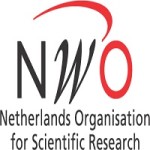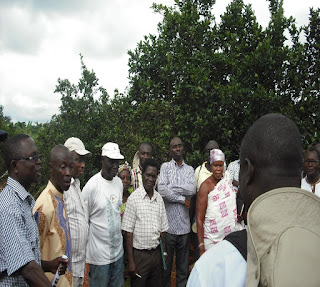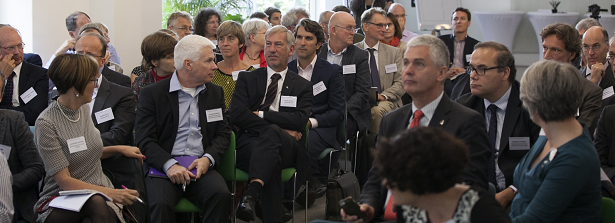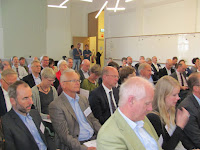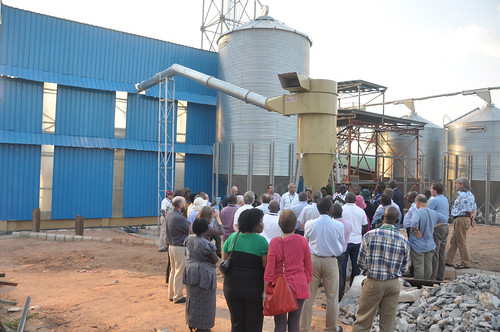23 - 24 September 2015. Uppsala, Sweden. This conference was a forum for balanced and science-based discussions about the ways forward, and on how multidisciplinary agricultural sciences can contribute to the discussion on the Post 2015 Development Agenda.
This was a two-day event for researchers and professionals who work with and/or interested in agriculture for development. PhD students, senior scientists, experts from social, political, soils, crops, natural resources and animal science, economy, forestry, horticulture, veterinary medicine etc. participated.
Keynote speakers of the conference included John McDermot (Director for CGIAR Research Program on Agriculture for Nutrition and Health, IFPRI); Kostas Stamoulis, Director ESA, FAO, Rome; Margaret Kroma, Assistant Director General – Partnerships & Impact, World Agroforestry Centre, ICRAF; Christel Cederberg (Professor at the Department of Energy and Environment, Chalmers University of Technology, Sweden); and Jim Sumberg (Research fellow, Institute of Development Studies – IDS. University of Sussex, UK).
 Download the Conference Booklet
Download the Conference Booklet
Improving access to markets and developing value chains. Session leader: Kostas Karantininis, SLU
This was a two-day event for researchers and professionals who work with and/or interested in agriculture for development. PhD students, senior scientists, experts from social, political, soils, crops, natural resources and animal science, economy, forestry, horticulture, veterinary medicine etc. participated.
Keynote speakers of the conference included John McDermot (Director for CGIAR Research Program on Agriculture for Nutrition and Health, IFPRI); Kostas Stamoulis, Director ESA, FAO, Rome; Margaret Kroma, Assistant Director General – Partnerships & Impact, World Agroforestry Centre, ICRAF; Christel Cederberg (Professor at the Department of Energy and Environment, Chalmers University of Technology, Sweden); and Jim Sumberg (Research fellow, Institute of Development Studies – IDS. University of Sussex, UK).
Extract ofthe program:
Transforming subsistence farming into commercial enterprises: The changing face of eastern and southern African agriculture. Session leaders: Ivar Virgin, SEI; Matthew Fielding, SIANI.- Commercialisation of Agriculture among Smallholder Farmers Catherine Komugisha Tindiwensi, Makerere University Business School, Uganda
- Food Security, Water and Sanitation for Improved Wellbeing of Smallholder Farmers in East and Southern Africa Ngolia Kimanzu, International Development, The Salvation Army, Sweden & Latvia Territory
- New Products from Traditional Grains to Create a Market and Improve Food Security. Mats Stading, Structure and Material Design, SP Food and Bioscience, Sweden.
- Rapid Ex-ante Environmental Impact Assessment for Livestock Value chains. Ylva Ran, Stockholm Environment Institute(SEI).
- From Communal to Private: The Case of Changing Land Tenure and its Implications for Agricultural Practices in West Pokot, Kenya Laura Saxer, School of Global Studies, University of Gothenburg, Sweden
- The Impact of Large Scale Land Acquisition on the Right to Adequate Food of Small Scale Farmers in Lipokela, Tanzania. Atenchong Talleh Nkoboul, Institute of Social Sciences in Agriculture, University of Hohenheim, Germany
- Is Land Tenure Conversion Indispensable for Agricultural Transformation in Sub-Saharan Africa? Lasse Krantz, Unit of Human Geography, University of Gothenburg, Sweden
- Land Use Consolidation in Rwanda: The Experiences of Small-scale Farmers in Musanze District. Emmanuel Muyombano. Unit of Human Geography, University of Gothenburg, Sweden
- Large-scale Land Acquisitions and their Implications for Commercialization of Small-farms. Atakilte Beyene, The Nordic Africa Institute, Sweden
Sustainable intensification in agriculture
- Research-for-Development (R4D) platforms - a multi-stakeholder initiative for integrated farming towards sustainable intensification. Per Hillbur, Malmö University, IITA/Africa
- Risisng Biochar as an opportunity for agriculture in small-holder farming systems in Kenya – a win-win-win situation? Cecilia Sundberg, Swedish University of Agricultural Sciences, SLU
- Converting organic waste into valuable animal protein – Business opportunities for improved organic waste management. Cecilia Lalander, Swedish University of Agricultural Sciences, SLU
- Efficiency in small-scale urban dairy production has potential to increase in Uganda. Renee Båge, Swedish University of Agricultural Sciences, SLU
- Next Generation Breeding of East African Highland Bananas – The Main Staple of East African Great Lakes. Rodomiro Octavio Ortiz Rios, Swedish University of Agricultural Sciences, SLU
- The role of civil society in assessment of GM crops in Africa (Kenya, South Africa, and Uganda). Ksenia Gerasimova, University of Cambridge
- Opportunities and Challenges of ‘Climate Smart Agriculture’ Activities: A Critical Review of Empirical Evidence. Linus Karlsson, Swedish University of Agricultural Sciences, SLU
- Willingness to pay for organic food in Africa. Kostas Karantininis, Swedish University of Agricultural Sciences, SLU
- Cooperatives and Farm Gate Prices for Agricultural. Jens Rommel, Leibniz Center for Agricultural Landscape Research.
- Farmland investment in Africa: What’s the deal? Luca di Corato, Swedish University of Agricultural Sciences, SLU
- Choice of Marketing Channels in the Kenyan Domestic Organic Market. Leah Murimi, University of Nairobi
- Value chain governance and its influence on integration: Evidences from the malt-barley value chain in Ethiopia. Mulugeta Watabaji, Ghent University
- A model for Prototype Testing, Up-scaling and Commercialization of New Stress tolerant Canning Bean varieties in Eastern Africa. Paul Kimani, University of Nairobi






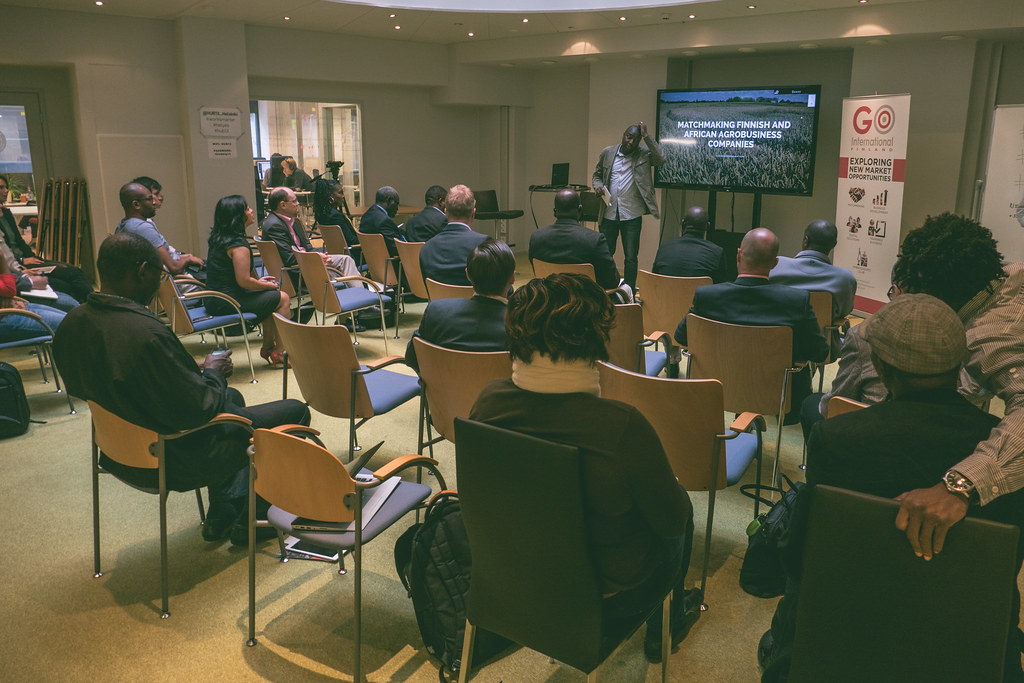
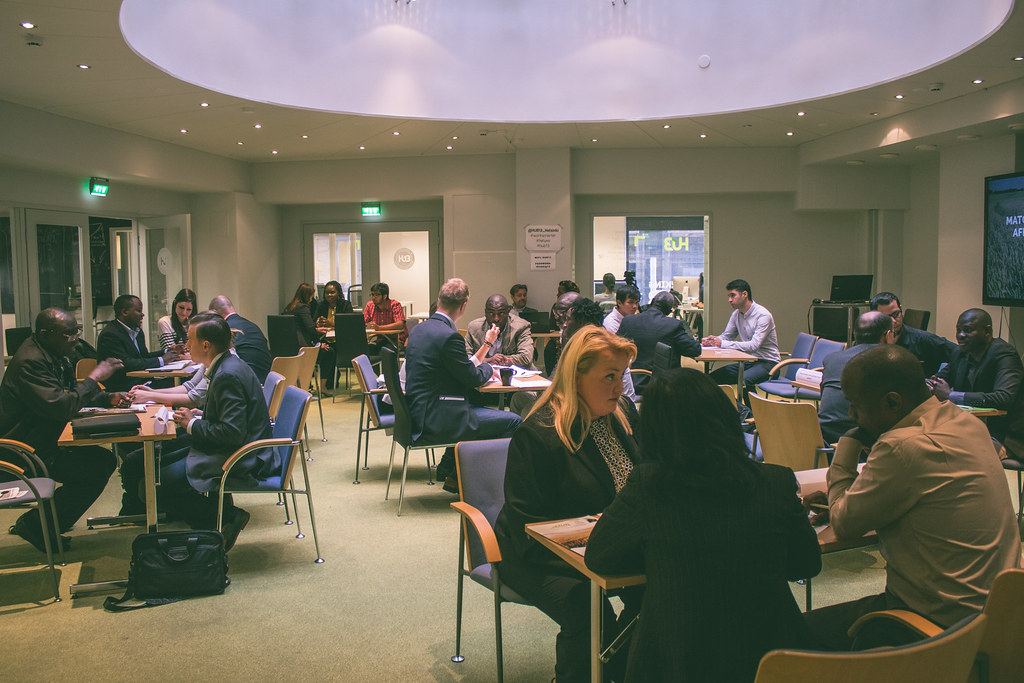
 Tailored fermentation for delivery of wholegrain andcereal fibre-rich products: promoting dietary fibre intake in Africa and Europe
Tailored fermentation for delivery of wholegrain andcereal fibre-rich products: promoting dietary fibre intake in Africa and Europe Finnish Bioeconomy Strategy
Finnish Bioeconomy Strategy









